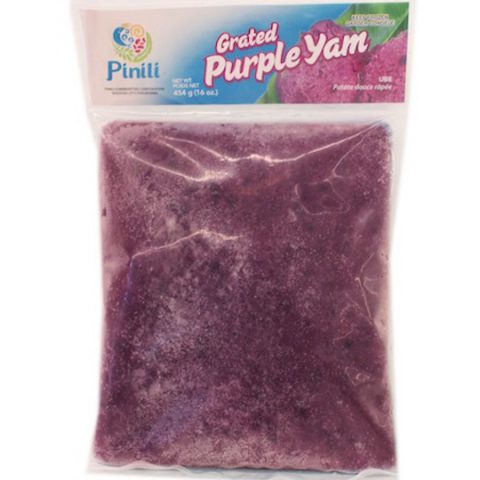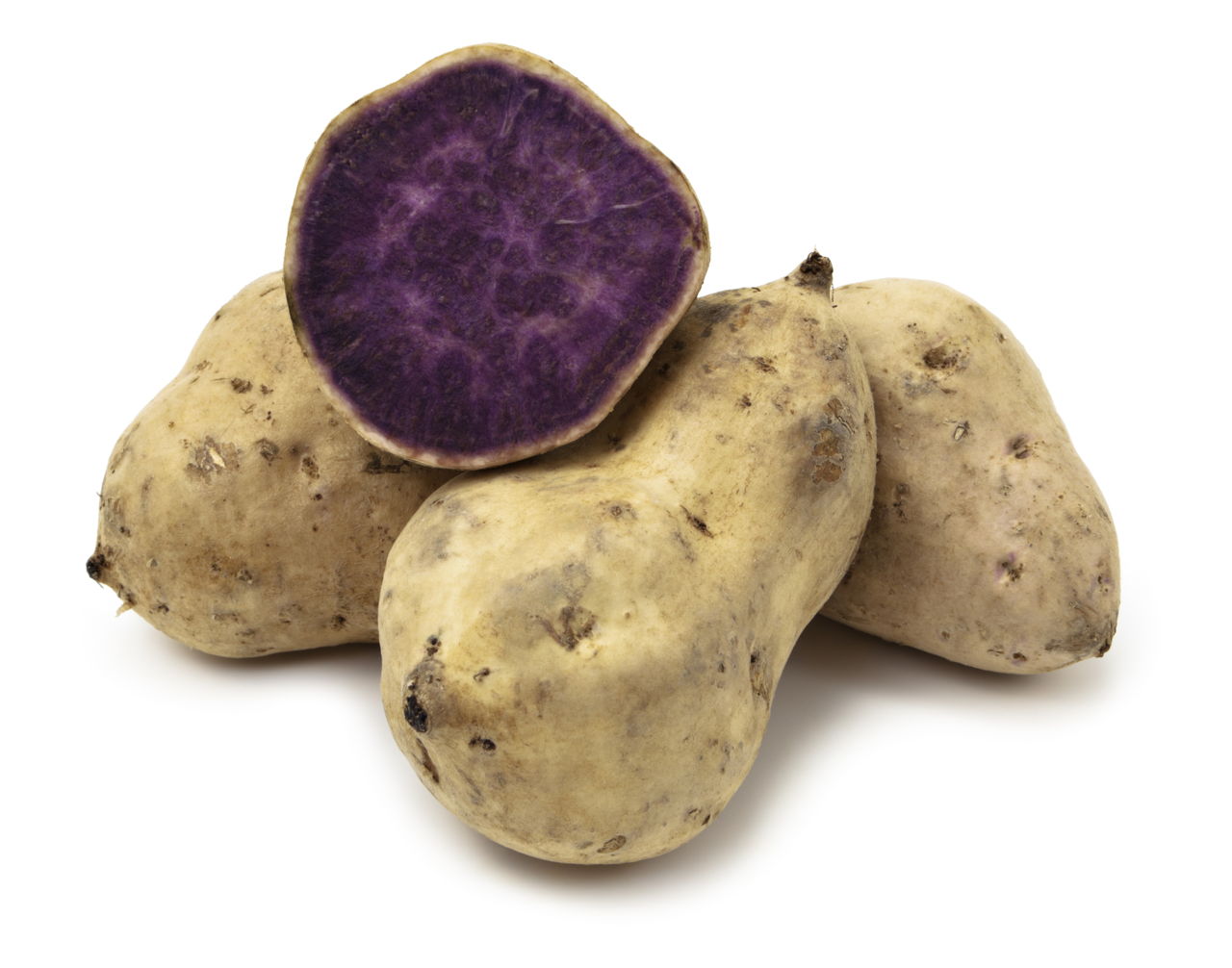

These bacteria play a vital role in your gut health, aiding the breakdown of complex carbs and fiber ( 31). One test-tube study showed that resistant starch from purple yams increased the number of Bifidobacteria, a type of beneficial gut bacteria, in a simulated large bowel environment ( 30).
#Grated purple yam full#
They are full of complex carbs and a good source of resistant starch, a type of carb that is resistant to digestion. Purple yams may help improve your gut health. Also, purple yams have a low glycemic index, which can help prevent blood sugar spikes. Summary The flavonoids in purple yams may help promote blood sugar control in people with type 2 diabetes. Purple yams have a GI of 24, meaning that carbs are broken down into sugars slowly, resulting in a steady release of energy instead of a blood sugar spike ( 22).

The GI, which ranges from 0–100, is a measure of how fast sugars are absorbed into your bloodstream. This is likely due in part to purple yams’ low glycemic index (GI). In addition, a study in 20 rats found that administering them higher amounts of purple yam extract lowered appetite, encouraged weight loss, and improved blood sugar control ( 20).įinally, another study reported that a purple yam supplement reduced the rate of blood sugar absorption in rats with elevated levels, resulting in improved blood sugar control ( 21). One test-tube study observed that flavonoid-rich purple yam extracts reduced oxidative stress and insulin resistance by protecting insulin-producing cells in the pancreas ( 19). Insulin resistance is when your cells don’t respond properly to the hormone insulin, which is responsible for maintaining your blood sugar control. Obesity and inflammation caused by oxidative stress increase your risk of insulin resistance, poor blood sugar control, and type 2 diabetes ( 18). The flavonoids in purple yams have been shown to help lower blood sugar in those with type 2 diabetes. They have been shown to protect against cell damage and cancer. Summary Purple yams are a great source of anthocyanins and vitamin C, both of which are powerful antioxidants. Thus, it’s unlikely that you would reap the same benefits from eating whole purple yams. That said, these studies used concentrated amounts of cyanidin and peonidin. Another test-tube study noted that cyanidin reduced the number of human prostate cancer cells ( 17). A test-tube study observed that peonidin slowed the growth of lung cancer cells ( 16). One study showed up to a 45% reduction in tumors in animals treated with dietary cyanidin, while another test-tube study found that it slowed the growth of human cancer cells ( 14, 15). Promising research suggests that two anthocyanins in purple yams - cyanidin and peonidin - may reduce the growth of certain types of cancers, including: Regularly eating polyphenol-rich fruits and vegetables has been linked to lower risks of several types of cancers ( 11, 12, 13). The anthocyanins in purple yams are also a type of polyphenol antioxidant. In fact, studies have shown that consuming more vitamin C can increase your antioxidant levels by up to 35%, protecting against oxidative cell damage ( 8, 9, 10). Purple yams are a great source of vitamin C, which acts as a potent antioxidant in your body.
#Grated purple yam free#
Purple yams are rich in antioxidants, including anthocyanins and vitamin C.Īntioxidants help protect your cells from damage caused by harmful molecules called free radicals ( 6).įree radical damage is linked to many chronic conditions, such as cancer, heart disease, diabetes, and neurodegenerative disorders ( 7). Summary Purple yams are starchy root vegetables that are rich in carbs, potassium, vitamin C, and phytonutrients, all of which are important for maintaining good health. What’s more, purple yams are rich in vitamin C, which helps keep your cells healthy, boosts iron absorption, and protects your DNA from damage ( 5). Studies have shown that anthocyanins may help reduce blood pressure and inflammation and protect against cancer and type 2 diabetes ( 2, 3, 4) In addition, they are rich in powerful plant compounds and antioxidants, including anthocyanins, which give them their vibrant hue. One cup (100 grams) of cooked ube provides the following ( 1): The purple yam (ube) is a starchy root vegetable that’s a great source of carbs, potassium, and vitamin C.


 0 kommentar(er)
0 kommentar(er)
